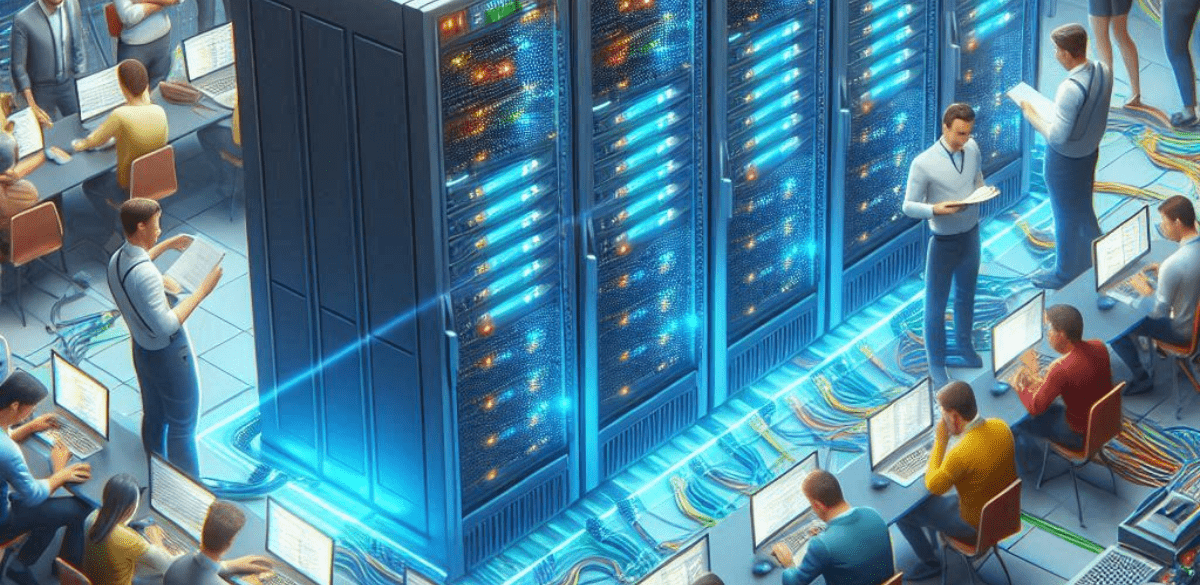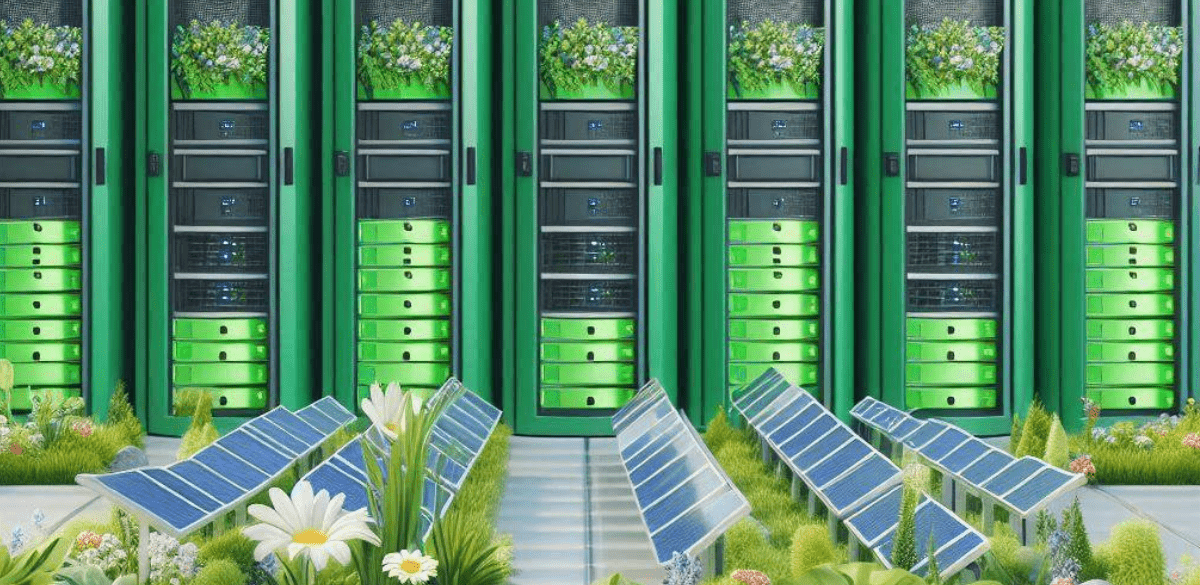Servers what’s the big deal, right? Well, they might not be the most glamorous piece of tech, but they’re the backbone of everything online. From streaming your favorite shows to handling your email, servers are working tirelessly behind the scenes. Let’s dive into the world of servers and see why they’re so essential in today’s digital landscape.
What Are Servers?
Basic Definition and Function
In simple terms, a server is a specialized computer that provides services or resources to other computers, known as clients, over a network. Whether you’re accessing a website, sending an email, or streaming a video, a server somewhere is making it all happen.
Historical Background
Servers have been around since the early days of computing. They started as massive, room-sized machines dedicated to specific tasks. As technology advanced, servers became more powerful and compact, transforming from behemoth machines to sleek, efficient powerhouses.
Evolution of Servers Over Time
From the clunky mainframes of the past to today’s powerful cloud-based solutions, servers have come a long way. This evolution has made them more accessible, affordable, and integral to our daily lives.
Types of Servers

Web Servers
Web servers are the unsung heroes behind every website you visit. They store, process, and deliver web pages to users. Without them, the internet as we know it wouldn’t exist.
Role in Hosting Websites
Web servers host websites, meaning they store all the data that makes up a website and serve it to users upon request. They handle everything from loading images to processing forms.
Examples and Use Cases
Popular web servers include Apache, Nginx, and Microsoft IIS. They are used by businesses, bloggers, and anyone looking to have an online presence.
What is Machine Learning? :understand in simple way.
Application Servers
Application servers are the middlemen between a user and an app’s backend. They provide the logic and interface for software applications.
Facilitating Software Applications
These servers handle everything from running an app’s business logic to managing database interactions, making them crucial for complex software applications.
Key Features
Key features of application servers include high availability, scalability, and the ability to manage multiple requests simultaneously.
Database Servers
When it comes to storing, retrieving, and managing data, database servers are the go-to. They provide the backend for a wide range of applications, from small apps to massive enterprise systems.
Managing Databases
Database servers are optimized to manage large amounts of data, ensuring that it’s stored securely and can be accessed quickly.
Popular Database Servers
Popular examples include MySQL, PostgreSQL, and Microsoft SQL Server. They’re used by businesses, educational institutions, and even individuals for personal projects.
What Is Cloud Computing? Learn In Simple Way.
File Servers
File servers are the digital filing cabinets of the tech world. They store and manage files, making them easily accessible to authorized users.
Storage and Retrieval
These servers store files and allow users to access and edit them as needed. They are essential for businesses that need to manage large amounts of data.
Use Cases in Businesses
Businesses use file servers to store documents, media files, and other digital assets, providing a centralized location for all their data.
Mail Servers
Mail servers handle the sending and receiving of emails. They’re like the post office of the internet, ensuring that your messages reach the right recipient.
Email Communication Management
Mail servers manage incoming and outgoing emails, handle spam filtering, and provide secure communication channels.
Security and Protocols
They use protocols like SMTP, IMAP, and POP3 to facilitate email communication while ensuring security and privacy.
How Algorithm Work, What Magic Happened Inside?
How Do Servers Work?

Client-Server Model
The client-server model is the foundation of how servers operate. In this model, clients (like your computer or smartphone) request services, and servers provide them. It’s a simple but powerful concept that underpins most online interactions.
Hardware and Software Components
Servers consist of specialized hardware and software. The hardware includes powerful processors, large amounts of RAM, and extensive storage. The software includes the operating system and server applications that manage and deliver services.
Networking and Data Transfer
Servers are connected to networks, allowing them to communicate with clients. They use various protocols to transfer data securely and efficiently.
Importance of Servers in Daily Life

In Business and Commerce
Servers play a vital role in business operations, from hosting e-commerce websites to managing internal communications. They enable companies to operate efficiently and serve customers better.
In Personal Use
For individuals, servers facilitate online activities like social media, online shopping, and streaming. They make it possible to access information and services from anywhere in the world.
In Public Services
Public services like healthcare, education, and government use servers to manage data, provide services, and communicate with the public. They are crucial for the smooth functioning of society.
How AI Works? What Magic Happened Inside?
Key Components of a Server

Hardware Components
Processors
Servers use high-performance processors to handle multiple tasks simultaneously. These processors are designed for reliability and efficiency.
RAM and Storage
Servers require large amounts of RAM to manage multiple requests and storage to keep data. They often use specialized storage solutions like SSDs for faster data access.
Software Components
Operating Systems
Server operating systems like Linux, Windows Server, and Unix manage hardware resources and provide a platform for server applications.
Server Applications
Server applications include everything from web servers to database management systems. They provide the specific services that clients request.
Security Considerations for Servers

Common Threats
Servers face various threats, including hacking, malware, and data breaches. These threats can compromise data and disrupt services.
Security Measures and Protocols
To protect servers, administrators use firewalls, encryption, and regular updates. Security protocols like HTTPS and SSL/TLS ensure secure communication.
Importance of Regular Updates
Regular updates are crucial for maintaining security. They patch vulnerabilities and keep the server software up to date with the latest security features.
Cloud Servers vs. Traditional Servers
Definition and Characteristics
Cloud servers are virtual servers hosted on the internet, while traditional servers are physical machines located on-premises. Each has its own characteristics and uses.
Advantages and Disadvantages
Cloud servers offer flexibility, scalability, and lower upfront costs. However, they may have ongoing subscription costs and potential security concerns. Traditional servers provide more control and security but require significant investment and maintenance.
Choosing the Right Option
Choosing between cloud and traditional servers depends on the specific needs of the user or organization. Factors to consider include cost, scalability, control, and security.
What Is Quantum AI Understand In Simple Way.
Future Trends in Servers Technology

Green and Energy-Efficient Servers
With growing concerns about the environment, there’s a trend towards energy-efficient servers. These servers consume less power and have a smaller carbon footprint.
AI and Machine Learning Integration
AI and machine learning are being integrated into server technology to optimize performance, predict failures, and enhance security.
Increasing Demand for Edge Computing
Edge computing, which involves processing data closer to the source, is becoming more popular. It reduces latency and improves performance for real-time applications.
Conclusion
Servers are the unsung heroes of the digital age. They power the internet, support businesses, and enable countless online activities. As technology evolves, so do servers, becoming more efficient, secure, and integral to our daily lives.
FAQs
What is the difference between a servers and a computer?
A server is a specialized computer designed to provide services to other computers over a network. While both can have similar hardware, servers are optimized for stability, reliability, and handling multiple requests simultaneously.
How can I set up my own servers?
Setting up a server involves choosing the right hardware, installing a server operating system, and configuring it to provide the desired services. It’s essential to consider factors like security, scalability, and maintenance.
What are the costs associated with maintaining a servers?
The costs include hardware, software, electricity, cooling, and maintenance. If using cloud servers, there may be subscription fees based on usage.
Can servers be used for gaming?
Yes, servers can host multiplayer online games, providing a platform for players to connect and interact. These gaming servers require high performance and low latency.
How do servers impact internet speed?
Servers themselves don’t impact internet speed directly. However, the performance and location of a server can affect the loading time of websites and the speed of online services.
